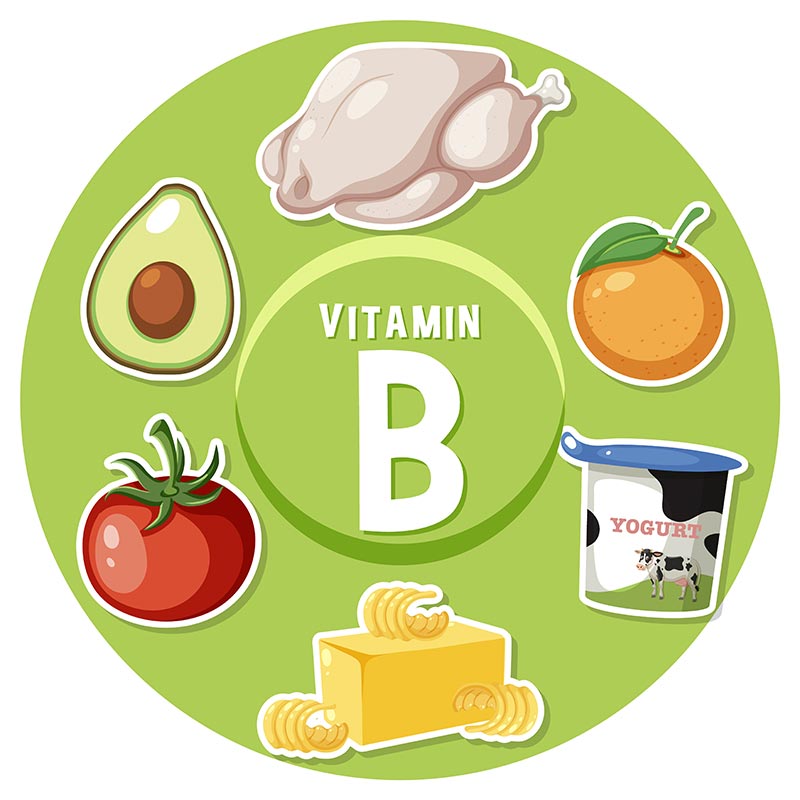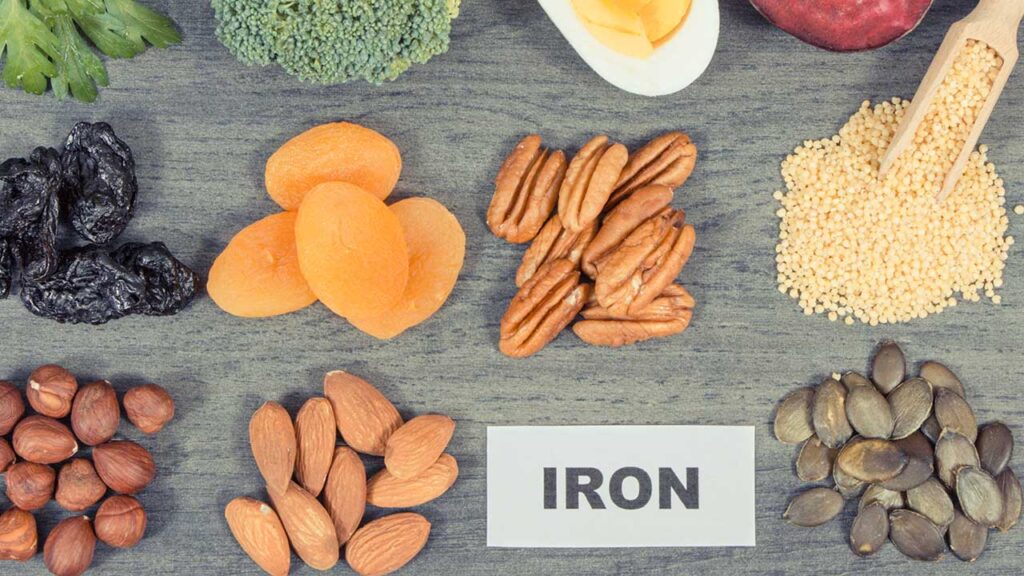Vitamins and Supplements for Energy
Summarize

A well-balanced diet is the primary and best source of the vitamins and minerals your body needs. However, certain nutritional deficiencies, such as iron, Vitamin D, and B vitamins, are common. These nutrients and some minerals, like magnesium, are crucial for maintaining or increasing energy levels. Energy supplements are designed to provide these essential vitamins and minerals, helping to restore low energy or boost energy levels through their actions in the body at the cellular level.
What Are Vitamins vs. Supplements?
Vitamins are naturally occurring nutrients in food. They are vital micronutrients the body does not produce or does not produce enough of for good health. Vitamins are Water-soluble or fat-soluble. The fat-soluble vitamins include A, E, D and K, which are important for healthy bones, immune function, vision and coagulation. A fat-soluble vitamin is absorbed with other dietary fats and stored in fatty tissue and the liver.
C and all the B vitamins are water-soluble. Except for vitamin B12, they are not absorbed by the body and are excreted through urine. Vitamin B12 can be stored in the liver.
Eating a healthy, balanced diet is the ideal way to get vitamins and is a significant step towards preventing vitamin deficiencies. However, it is important to remember that a healthy diet may not always provide all the vitamins your body needs. Factors like age, metabolism, medical condition, disease or even food quality can lead to a vitamin and mineral deficiency even if you are mindful of your diet.
What is the difference between vitamins and supplements? Vitamins are found in foods. Vitamins are sometimes called supplements because they supplement the vitamins obtained from food. However, supplements in marketing terms are differentiated in one primary way. They contain more than vitamins, like minerals, botanicals, and amino acids. Like vitamins, supplements complement a diet and are not intended to replace the missing nutrition from a diet.
Which Supplements and Vitamins Support Energy?
What are the best vitamins or supplements for energy? What can I take for energy and motivation? The following are some of the vitamins, minerals and other elements that may increase energy or reduce feelings of fatigue through their action in the body. With the right combination of vitamins and supplements, it is possible to overcome fatigue and regain energy.
B vitamins
The B vitamins are a set of vitamins. They include thiamine (B1), biotin (B7), niacin (B3), pyridoxine (B6), pantothenic acid (B5), folic acid (B9), riboflavin (B2) and cobalamin (B12). All of the B vitamins support energy production and cell storage differently. For example, vitamin B2 is an antioxidant that helps the body convert proteins, carbohydrates and lipids into compounds for energy in cells. Vitamin B6 is needed to produce amino acids and hemoglobin, which carry oxygen in red blood cells. Vitamin B12 breaks down carbohydrates into glucose, which converts into ATP to fuel cells, helps form red blood cells for transporting oxygen throughout the body and assists with converting protein and fat into energy.

Vitamin C
Vitamin C is needed for the biosynthesis of carnitine. Carnitine, an amino acid, preserves muscle glycogen and promotes fat oxidation. It turns fat into energy by transporting fatty acids into cells to produce energy, supporting muscle movement, brain functioning and more. It is an antioxidant, so it limits the formation and effects of free radicals. It also improves the absorption of iron in foods.
Vitamin D
Fatigue is one of the symptoms of low vitamin D. Vitamin D promotes calcium absorption and maintains the elements needed for strong bone growth and remodeling. It also modulates cell growth and glucose metabolism, among other actions.(5)
Magnesium
Magnesium is essential in helping over 300 enzymes perform their catalytic activity. The enzyme systems regulate many biochemical reactions in the body, including muscle and nerve function, protein synthesis, blood glucose control, etc. Magnesium is needed for energy production. One study found that people eating Western-style diets have low magnesium content, with 81% of men and 82% of women over 71 years having insufficient magnesium. This may be due to eating processed foods instead of high-magnesium natural foods like leafy greens, spinach, legumes and whole grains.
Iron
Iron is an element in red blood cells that transfers oxygen to various tissues, supplying energy. It supports muscle metabolism, cellular functioning, connective tissue and more.

Zinc
Like magnesium, zinc plays a major role in cellular metabolism by supporting the action of hundreds of enzymes that break down food so elements can be used for energy. It supports immune function, cell signaling and the bioavailability of vitamin B9, to name a few benefits.
Coenzyme Q10
Though CoQ10 is naturally manufactured in the body, low levels impact energy levels. It is required for ATP (adenosine triphosphate) synthesis. ATP stores energy and supplies it to cells when needed. It is used in various functions, including muscle contractions. ATP is referred to as the “energy currency” of cells. The coenzyme Q10 neutralizes free radicals, improves energy and supports the immune system. A review of 13 clinical trials found CoQ10 effective in reducing fatigue.
Creatine
Creatine is another compound occurring naturally in some foods and the body. It plays a crucial role in cellular metabolism, helping muscles produce energy bursts (aerobic capacity), especially during high-intensity, short exercise.
Amino acids
There are nine essential amino acids that the body cannot make. Amino acids are needed to break down food and repair body tissue. They are an important source of the body’s energy. The nine essential acids commonly found in supplements are isoleucine, histidine, lysine, leucine, phenylalanine, methionine, tryptophan, threonine and valine.
Of course, supplements may contain other vitamins, minerals and amino acids that contribute to energy levels in different ways. Some botanicals (herbal supplements) are also added to various vitamin and mineral supplements, like ashwagandha, ginseng and Rhodiola rosea. Researchers have found that these plant adaptogens may help people overcome fatigue.
Tips for Taking Vitamins and Supplements for Energy
Questions about how and when to take supplements and vitamins for energy are always asked. Here are a few tips.
- The fat-soluble vitamins should be taken with fat in a meal because that is how they are best absorbed.
- Water-soluble vitamins like B6, B12, and C should be taken with a full glass of water at a meal.
- Iron works best when taken on an empty stomach with water, a vitamin C supplement or orange juice. Avoid taking it with calcium-rich foods because calcium interferes with iron absorption. If it upsets the stomach, take it with food to minimize side effects.
- Take vitamin D with the largest meal you eat each day.
- Take water-soluble vitamins with a glass of water.
- Follow the recommended dosage on the product label or in the instructions because they are based on science.
- Establish a routine for taking vitamins and supplements to keep a steady amount in your system.
- Always consult a doctor before adding vitamins and supplements to your diet. Some supplements may not mix well with various prescription medicines. Also, some vitamins need monitoring if you are pregnant.
- Do not take more supplements than the brand or your doctor recommends. Taking an excess of some vitamins or minerals can cause issues. For example, taking too much iron can lead to liver damage.
Remember that vitamins and supplements are not meant to replace a healthy diet. They are taken to fill nutrient gaps.
Discuss Energy Needs with a Doctor
Each person is unique in terms of their vitamin and supplement needs. If you are experiencing low energy or fatigue, it is important to inform your doctor. Simple lab tests can detect the compounds you are not getting through diet.
You want only to take the vitamins and supplements you need. Too many people take too much because they assume too much is better than not enough. However, taking too many supplements and vitamins for energy can lead to unwanted side effects. Instead, you want to achieve a healthy balance of nutrients through diet and supplementation.
Sources
- https://www.ncbi.nlm.nih.gov/books/NBK534869/#
- https://medlineplus.gov/ency/article/002399.htm
- https://www.ncbi.nlm.nih.gov/pmc/articles/PMC7019700/
- https://ods.od.nih.gov/factsheets/VitaminC-HealthProfessional/
- https://ods.od.nih.gov/factsheets/VitaminD-HealthProfessional/
- https://ods.od.nih.gov/factsheets/Magnesium-HealthProfessional/
- https://www.ncbi.nlm.nih.gov/pmc/articles/PMC6032400/
- https://ods.od.nih.gov/factsheets/Iron-HealthProfessional/
- https://ods.od.nih.gov/factsheets/Zinc-HealthProfessional/
- https://www.ncbi.nlm.nih.gov/books/NBK553175/
- https://www.ncbi.nlm.nih.gov/pmc/articles/PMC3178961/
- https://www.ncbi.nlm.nih.gov/pmc/articles/PMC9449413/
- https://www.ncbi.nlm.nih.gov/pmc/articles/PMC7910963/
- https://medlineplus.gov/ency/article/002222.htm
- https://ods.od.nih.gov/factsheets/WYNTK-Consumer/
- https://ods.od.nih.gov/factsheets/WYNTK-Consumer/
- https://www.ncbi.nlm.nih.gov/pmc/articles/PMC5241405/
Share this post
